impact area
Prevention & Detection
The most effective way to fight cancer is to prevent it or catch it early, when treatment is most likely to succeed. Scientists at the Purdue Institute for Cancer Research are studying how lifestyle, biology and the environment influence cancer risk and development. Their discoveries are leading to earlier detection and strategies that can stop cancer before it starts.
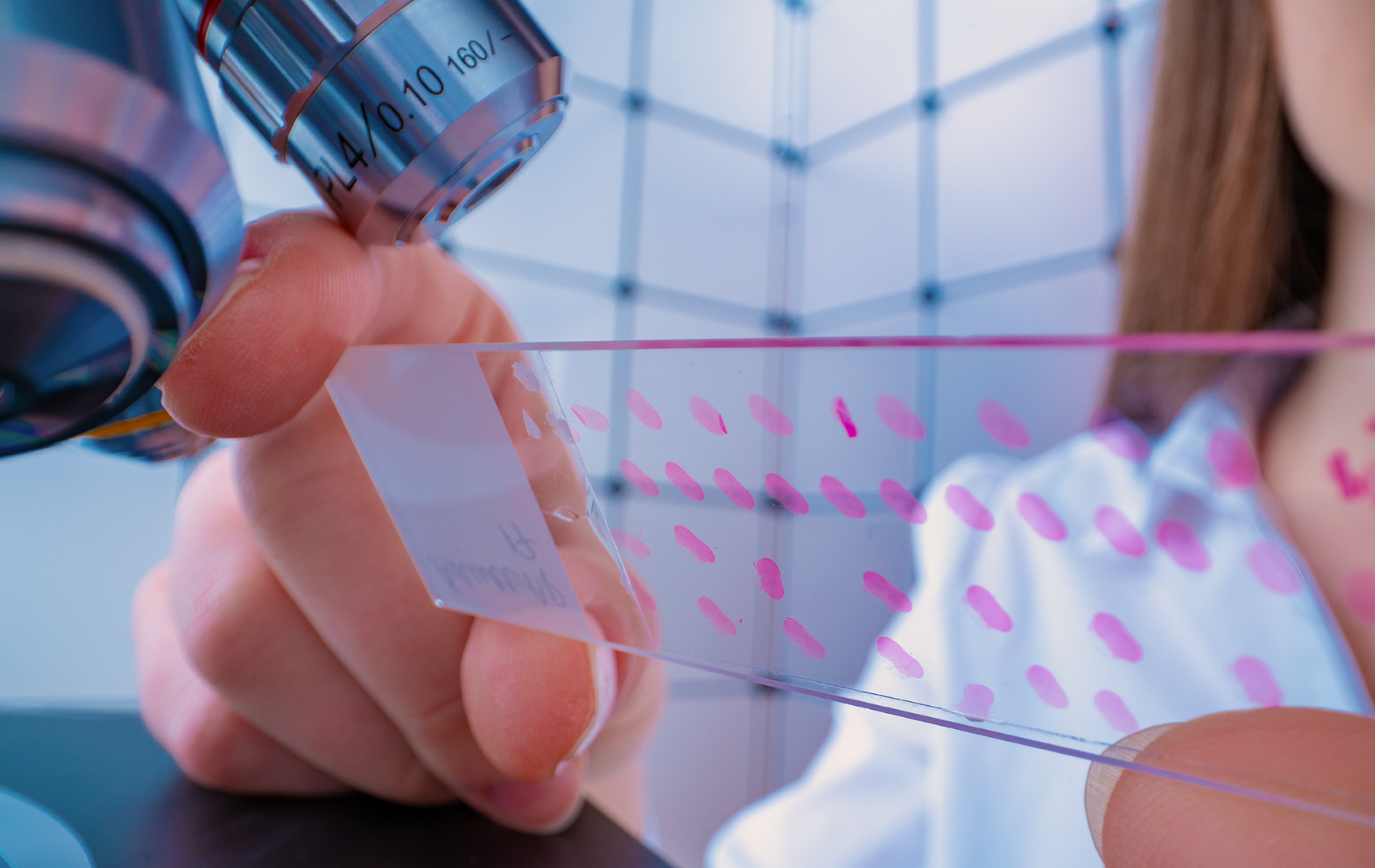
GETTING AHEAD OF CANCER
The power of acting early
Early detection and prevention efforts have already saved millions of lives. According to the American Cancer Society, U.S. cancer death rates have dropped significantly since the early 1990s, largely due to better screening, reduced smoking and earlier interventions. These trends underscore the lifesaving potential of research focused on detecting and treating cancer sooner and reducing risk before it develops.

Nutrition and the gut microbiome
Patricia Wolf, assistant professor in Purdue’s Department of Nutrition Science, is investigating how nutrition and the gut microbiome interact to influence cancer development. Her research examines how dietary components affect inflammation and the microbial composition of the gut, which in turn may alter susceptibility to colorectal and other cancers. By connecting biological mechanisms to environmental and behavioral factors, her work is uncovering new strategies to prevent cancer before it starts and to reduce variations in outcomes across populations.
making cancer less likely
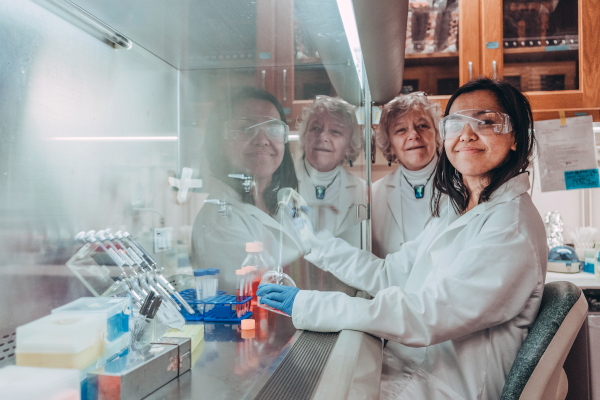
Understanding the factors that drive cancer risk
PICR researchers are examining the complex interplay of biological processes, daily habits and environmental exposures that shape cancer risk. Dorothy Teegarden, professor in the Department of Nutrition Science, investigates how vitamin D and other dietary signals affect the pathways that control cell growth and gene activity. Her findings, with implications for breast and colorectal cancers, are helping explain how nutrients can lower cancer risk and guide more personalized prevention strategies.
Noninvasive blood tests for breast cancer detection
Andy Tao, professor of biochemistry, is developing blood-based diagnostics to detect breast cancer at its earliest stages, with a focus on aggressive tumors in high-risk individuals. His lab has identified hundreds of phosphorylated proteins circulating in extracellular vesicles, offering a promising set of biomarkers for spotting cancer before symptoms appear. This work aims to make cancer screening safer, faster, and more accessible, which could improve outcomes through earlier intervention.
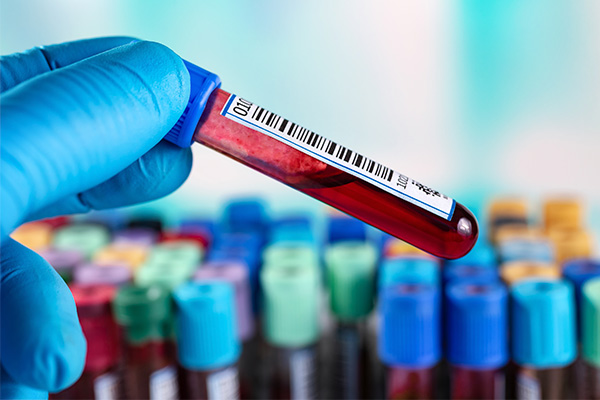
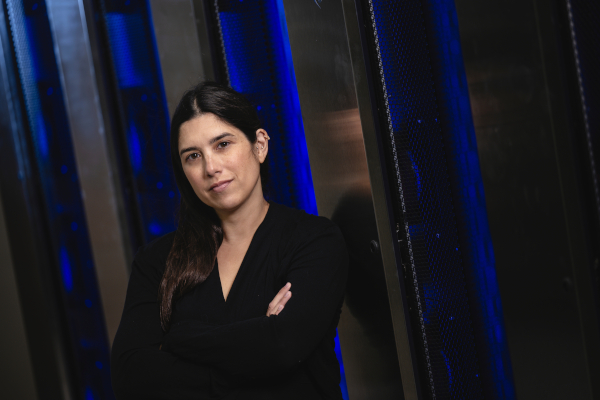
Liquid biopsy innovation
PICR researchers are expanding the use of liquid biopsy technologies to detect and track cancer through a simple blood draw. Nadia Atallah Lanman, manager of the Collaborative Core for Cancer Bioinformatics, is applying next-generation sequencing to identify tumor-derived DNA in dogs and cats, creating tools to catch cancer earlier and monitor how it changes over time. These comparative oncology studies are helping develop noninvasive cancer diagnostics that could translate to improved screening and disease monitoring in people.
unique expertise
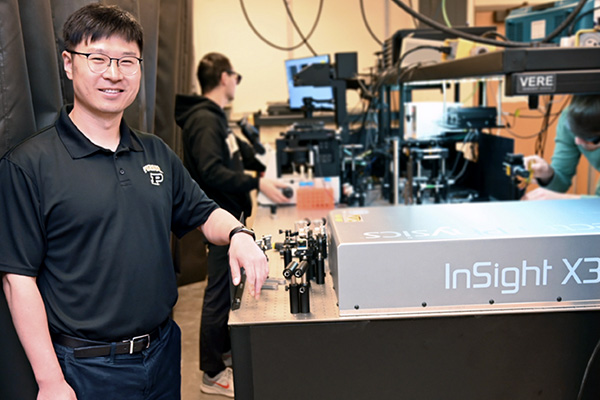
Imaging breakthroughs for early detection
Advanced imaging technologies enable earlier detection of cancer, when treatment is most effective. Keith Stantz, professor of health sciences, contributed to the development of molecular imaging probes to improve the detection of ovarian cancer, including early work targeting the follicle-stimulating hormone receptor (FSHR) in preclinical models. This research demonstrated the potential of molecular imaging to help identify tumors at earlier, more treatable stages. Craig Goergen, professor of biomedical engineering, is developing ultrasound techniques to identify subtle tissue changes that may signal early tumor growth. Chi Zhang, assistant professor of chemistry, applies optical imaging to track molecular and metabolic changes in cells, work that could detect cancer before it forms visible tumors.
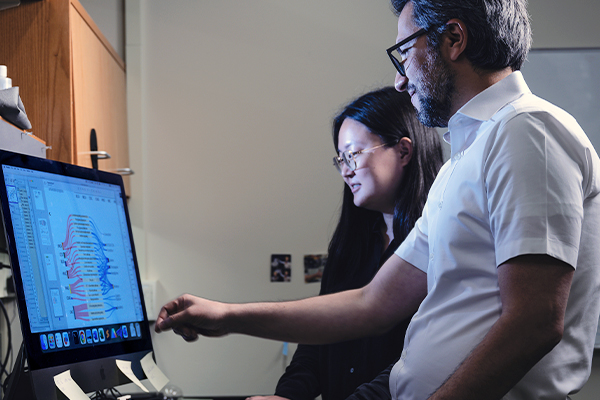
AI-driven advances in prediction and detection
Artificial intelligence (AI) is expanding what’s possible in early cancer detection. Majid Kazemian, associate professor of biochemistry and computer science, uses machine learning to analyze immune signaling and gene regulation data, uncovering biomarker patterns that distinguish aggressive tumors. Hector Gomez, the Morris Goldman Chair in Engineering, has developed a patient-specific AI-based model to to forecast prostate-specific antigen (PSA) dynamics and predict prostate cancer recurrence after radiation therapy a median of nearly 15 months earlier than current clinical practice. These innovations enable faster, more precise interpretation of complex datasets, helping clinicians identify cancer with greater accuracy, personalize treatment strategies and intervene sooner to improve outcomes.
Veterinary research that informs human health
Cancer prevention and early detection research also extend to the health of our companion animals. Dr. Marejka Shaevitz coordinates veterinary clinical trials that evaluate new diagnostic and therapeutic approaches in dogs, helping generate data that can guide similar strategies in people.
In bladder cancer research, Dr. Deborah Knapp is leading clinical studies aimed at preventing cancer in at-risk dogs, work that is informing approaches for related cancers in humans. Veterinary research by PICR investigators provides valuable models of cancer development, treatment response and prevention that benefit pets and people.

YOU CAN FUEL RESEARCH THAT FIGHTS CANCER
Support scientific breakthroughs that impact every stage of the cancer journey.
Contact Us
Get in touch
Phone: 765-494-9129
Fax: 765-494-9193
Email: cancerresearch@purdue.edu
Meet our team
Find us
201 S. University St.
Hansen Life Sciences Bldg, Rm. 141
West Lafayette, IN 47907